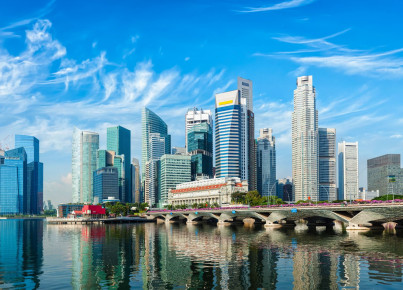Depicting the South China Sea is a tricky thing, given the territorial disputes between some ASEAN countries and China. And it sometimes happens that movies or bands have problems
It may be a "childish doodle," as Warner Bros. called it, but enough is enough. The map that appears behind Barbie's back in a scene in the trailer was enough to have the film removed from Vietnamese theaters. And it is not even nine features, but eight. Their location next to a parallelepiped sketched with the words "Asia" conveys an unmistakable image: that is the "nine-dash line," the demarcation line of those territories in the South China Sea that China claims as its own.
First the posters disappeared from theaters, then on Monday, June 26, came the final news: Greta Gerwig's film will not be released "because of some scenes depicting the nine-dash line map, which is considered a violation of Vietnam's territorial sovereignty." Word from the National Council for the Evaluation and Classification of Films. Social media also favored the government perspective: regretful but infuriated with the producers, Vietnamese netizens were equally offended by the pro-China map.
Manila also considered the option of outright censorship. "The map legitimizes Chinese claims, which no government in the world supports" and is "offensive to all" countries in the region, argues military analyst Jose Antonio Custodio. These are smaller markets, but not so indifferent, explains Hollywood Reporter: a Hollywood cult in the Philippines and Vietnam can add between five and ten million dollars to Warner Bros. budget. Quite a risk if national pride starts infecting neighboring countries. The Asian archipelago, moreover, spearheaded the 2016 petition to the international tribunal in The Hague denouncing Chinese incursions and demanding compliance with the United Nations Convention on the Law of the Sea (UNCLOS).
Pop nationalism
The same "oversight" in 2019 cost Vietnamese film distributor CJ CGV as much as $170 in fines: it had marketed The Little Yeti, a DreamWorks-signed cartoon that ended up in the crosshairs of the Philippines, Vietnam, and Malaysia for the same reason. 2019, after all, has been one of the most tense years in the South China Sea, caused by the operations of the Chinese vessel Haiyang Dizhi 8 around the Spratly Islands.
La stessa “svista” nel 2019 è costata ben 170 dollari di multa al distributore di film vietnamita CJ CGV: aveva commercializzato Il piccolo Yeti, un cartone animato firmato DreamWorks finito nel mirino di Filippine, Vietnam e Malesia per la stessa ragione. Il 2019, d’altronde, è stato uno degli anni di maggiore tensione nel Mar cinese meridionale, causata dalle operazioni del vascello cinese Haiyang Dizhi 8 nei dintorni delle isole Spratly.
The nine-dash line, which takes up about 90 percent of the three million square kilometers of water that bathes mainland Southeast Asia, has infuriated the Philippine government with Netflix over its appearance in some scenes of the Australian series Pine Gap. So much so that the streaming giant proceeded with their removal from the platform.
On the other hand, critics say, there would be an ongoing process of self-censorship and condescension toward China by the cultural industry giants. Between multimillion-dollar investments in U.S. production companies coming in from the PRC and the obvious preponderance of the Chinese market - the second largest in the world - here even Hollywood would be prone to the subtleties of Chinese soft power.
In 2016, a bipartisan group of sixteen members of Congress had taken it upon themselves to expose Chinese business around the U.S. entertainment industry, gaining the consensus of the Committee on Foreign Investment in the United States (CFIUS). In ASEAN countries, at least those most aggressive against Chinese incursions into claimed areas, the process is less complicated: the government takes care of it directly.
Not just cinema
The rhetorical battle is not limited to the cinematic sphere. Initially denounced on social media, the controversial graphics on the website of the organizers of the Vietnamese leg of the k-pop group Blackpink generated the same boycott threats. The company, iMe Entertainment Group Asia, soon responded to the Culture Ministry's demands by promising to remove the tour map. It explained in a statement, "The map does not specifically represent the territory of any country, we are aware of and respect the sovereignty and culture of each country."
Hanoi also did not relent when it came to validating entry visas into the country on new Chinese passports. In 2012, these passports clearly showed the map that since 1949 would justify the historical belonging of the South China Sea territories to China. And Vietnam then asked to issue separate documents instead of stamping the dedicated pages.
In countries such as Vietnam, culture is one of the outlets granted by the Party. This was the case with the wave of demonstrations in 2011 and 2014 that brought masses of angry citizens to the streets of major Vietnamese cities, all in protest of Chinese manoeuvres in the claimed areas of Hoàng Sa (Paracelsus Islands) and Trường Sa (Spratly Islands).
Bringing down the language of nationalism to the culture industry could allow this too. What better than a global cinematic success to ignite the flame of public participation where few-if any-are the venues for dissent? A process that occurs, by contrast, in China, where geographic definitions on a T-shirt can trigger a brand ban.
Philosopher Alfred Korzybski argued that "the map is not the territory," but an ideological construct. For Asian countries bordering the South China Sea, the map is something more: an always necessary history, and never a "doodle."






